Там . 17, 2025 01:40 Back to list
Best Industrial Embroidery Machines for Sale - Computerized, Automatic
The Evolution of Industrial Embroidery: Trends and Demands
The textile and apparel industry is experiencing a significant transformation, driven by demands for increased personalization, faster production cycles, and superior quality. At the forefront of this evolution are the best industrial embroidery machines for sale, which have become indispensable assets for businesses aiming to capitalize on these market trends. Modern industrial embroidery isn't just about decorative stitching; it's a high-precision manufacturing process that integrates advanced robotics, sophisticated software, and robust mechanical engineering to deliver consistent, high-volume output. Current industry trends highlight a shift towards machines offering greater versatility, capable of handling a diverse range of materials from delicate silks to heavy denim, and incorporating features like automatic color change, thread trimming, and error detection. The drive for efficiency also emphasizes higher stitches per minute (SPM) rates without compromising stitch quality, allowing manufacturers to meet tight deadlines and optimize operational costs. Furthermore, the rising popularity of customized apparel and promotional products, from branded uniforms to intricate fashion pieces, necessitates equipment that can seamlessly transition between different design complexities and production scales. This sector's growth is further fueled by the integration of IoT for remote monitoring and predictive maintenance, enhancing machine uptime and overall productivity. The convergence of these technological advancements and market demands underscores the critical role of choosing the right industrial embroidery solution.
Beyond speed and versatility, the market for industrial embroidery solutions is increasingly focused on user-friendliness and integration capabilities. Operators require intuitive interfaces, often touch-screen based, that simplify design loading, parameter adjustments, and job management. Software compatibility with popular digitizing programs (e.g., Wilcom, Pulse, Embrilliance) is crucial for a smooth design-to-production workflow, supporting common file formats like DST, PES, and EXP. Another significant trend is the increasing demand for specialized attachments and functionalities, such as sequin devices for adding sparkle, cording attachments for textured designs, and robust cap and cylindrical attachments for items like hats, bags, and sleeves, greatly expanding the revenue potential for businesses. For applications like school uniforms, corporate branding, or sportswear, the ability to rapidly switch between flatbed and hoop embroidery setups is a considerable advantage. The growth in direct-to-garment (DTG) printing has also created synergistic opportunities, where embroidery machines complement printed designs by adding tactile, three-dimensional elements. Businesses are also seeking machines with reduced energy consumption and lower noise levels, contributing to a more sustainable and ergonomic production environment. This holistic approach to machine design, integrating performance, versatility, and operational efficiency, defines the cutting edge of industrial embroidery technology, enabling businesses to unlock new levels of creativity and profitability in a competitive global market.
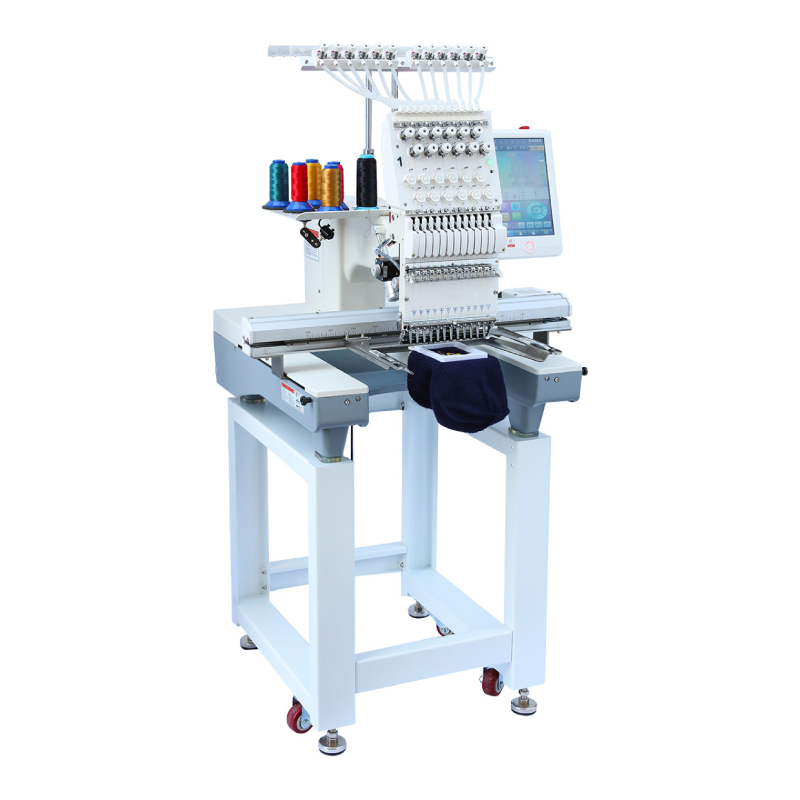
Technical Specifications and Core Capabilities
A key factor in selecting the best industrial embroidery machines for sale is a thorough understanding of their technical parameters and core capabilities. For instance, the `Wholesale Commercial industrial automatic 15 needles single head computer hat tshirt cap Computer Embroidery Machine` exemplifies a robust solution designed for diverse applications. Such machines typically feature 15 needles, allowing for complex multi-color designs without manual thread changes, significantly enhancing production efficiency. A high-resolution 10-inch true color LCD touch screen is standard, providing an intuitive interface for design editing, parameter adjustments, and real-time monitoring of the embroidery process. The maximum speed often reaches up to 1200 stitches per minute (SPM) for flat embroidery and 1000 SPM for cap embroidery, ensuring rapid production cycles. A large embroidery area, such as 560 x 360 mm for flat embroidery and 270 degrees for cap embroidery, offers substantial flexibility for various garment sizes and product types. Advanced control systems, often from industry leaders like Dahao, provide stability, precision, and a wide array of functions including automatic thread trimming, automatic color change, and power-off protection for data retention. These integrated features minimize operator intervention, reduce material waste, and ensure consistent stitch quality across large production runs.
The mechanical integrity of an industrial embroidery machine is paramount to its longevity and performance. High-grade materials and precision manufacturing processes are employed in the construction of critical components. For example, the machine's frame is typically constructed from high-strength steel, often utilizing advanced welding techniques to ensure rigidity and minimize vibration even at high speeds, which is crucial for maintaining stitch precision. Components like needle bars, presser feet, and rotary hooks undergo rigorous CNC machining to achieve micron-level tolerances, reducing friction and wear. Bearings and motors, particularly servo motors for precise movement control, are sourced from reputable suppliers to guarantee extended service life and consistent performance. Quality assurance adheres to stringent international standards, such as ISO 9001 for manufacturing processes and CE certifications for electrical safety and electromagnetic compatibility, ensuring the product meets global benchmarks for reliability and safety. These machines are engineered for continuous, heavy-duty operation, often exceeding 10-15 years with proper maintenance, making them a significant long-term investment. This level of technical specification ensures that the machine can handle demanding production environments, delivering unparalleled quality and efficiency across various fabric types and design complexities, thereby optimizing return on investment for businesses.
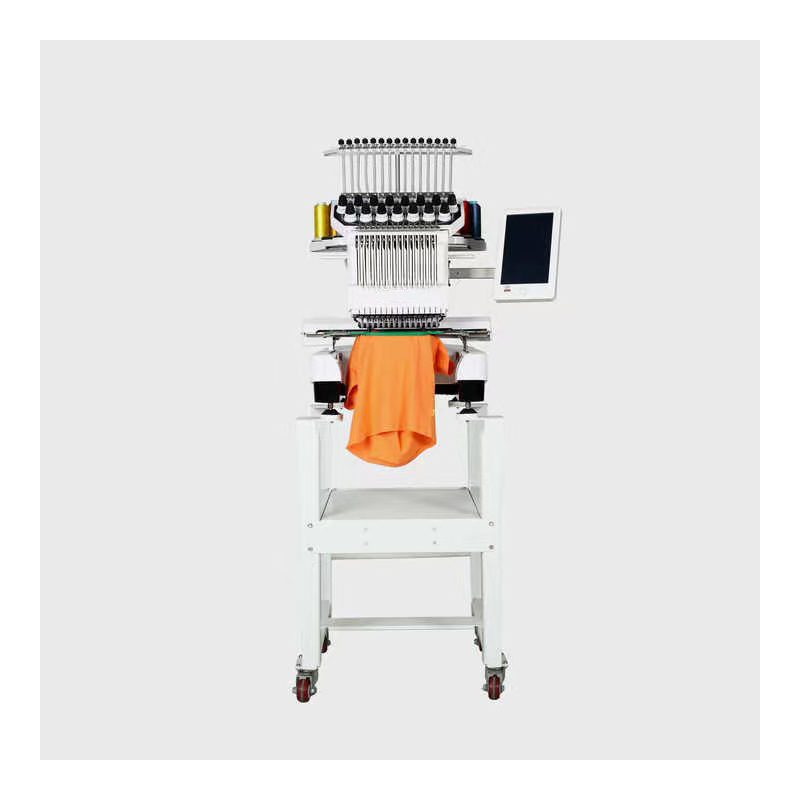
Key Product Specifications Table
| Parameter | Specification (Typical) |
|---|---|
| Number of Needles | 15 Needles |
| Head Type | Single Head |
| Embroidery Area (Flat) | 560 x 360 mm (22 x 14 inches) |
| Embroidery Area (Cap) | 270 degrees wide angle |
| Max Speed (Flat) | 1200 SPM |
| Max Speed (Cap) | 1000 SPM |
| Control System | Dahao 10-inch LCD Touch Screen |
| Memory Capacity | 200 million stitches / 2000 designs |
| Supported Formats | DST, PES, EXP, JEF, HUS, etc. |
| Power Supply | AC200-240V, 50/60Hz, 300W |
| Automatic Functions | Thread Trimming, Color Change |
| Connectivity | USB, Network (Optional) |
Manufacturing Precision and Quality Assurance
The superior performance of the best industrial embroidery machines for sale originates from a meticulously engineered manufacturing process, emphasizing precision, durability, and reliability. The journey begins with the selection of premium-grade raw materials. For instance, the machine's robust chassis is typically formed from high-tensile steel alloys, chosen for their inherent strength and vibration-dampening properties. Critical components such as needle bars, presser feet mechanisms, and rotary hooks are often crafted from hardened tool steel or aerospace-grade aluminum, undergoing multi-stage CNC machining processes to achieve exacting tolerances of mere microns. This ensures minimal friction, reduced wear, and precise alignment, which are vital for maintaining stitch integrity at high speeds. Unlike older manufacturing methods, modern industrial machines avoid general casting for primary movement components, instead favoring precision forging or billet machining to eliminate internal stresses and ensure uniform material density, significantly extending component lifespan. Each individual part, regardless of its size, is subjected to stringent quality control checks, including CMM (Coordinate Measuring Machine) inspections for dimensional accuracy and material analysis to confirm metallurgical properties.
The assembly phase is equally critical, performed in controlled environments by highly skilled technicians. Precision assembly involves calibrated torque wrenches for every fastener, ensuring consistent tension and preventing loosening under operational stress. Advanced robotic systems are often employed for repetitive, high-precision tasks, enhancing consistency and reducing human error. Post-assembly, each machine undergoes a comprehensive series of rigorous performance tests. These include endurance tests, where machines run continuously at maximum speed for extended periods to simulate demanding production environments, and quality assurance checks for stitch consistency, thread trimming efficiency, and color change accuracy across various fabric types and design complexities. Compliance with international standards such as ISO 9001 for quality management systems and ANSI standards for safety and operational performance is non-negotiable, affirming the machine's adherence to global best practices. This meticulous manufacturing and testing regimen not only guarantees the machine's exceptional durability and a projected service life often exceeding 10-15 years under continuous use but also ensures peak performance, significantly reducing downtime and maintenance costs. The robust construction and precise engineering provide inherent advantages, such as energy efficiency through optimized motor performance and reduced wear-and-tear, contributing to long-term operational savings and a higher return on investment for businesses in the apparel, promotional, and textile industries.
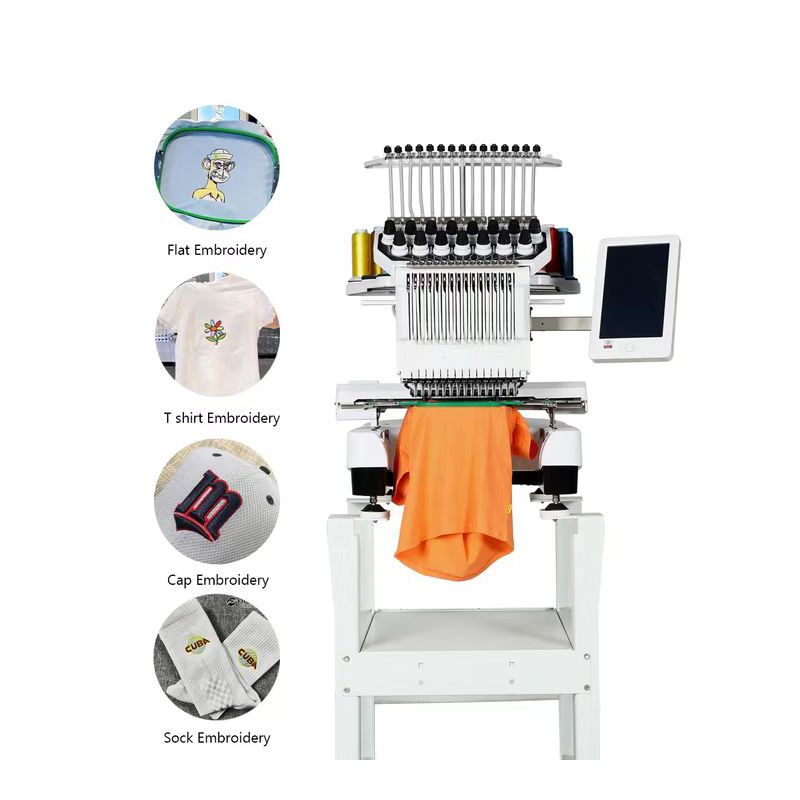
Versatile Applications and Tailored Solutions
The adaptability of the best industrial embroidery machines for sale makes them indispensable across a wide array of application scenarios, serving diverse sectors that demand high-quality, customized textile embellishments. From small-to-medium enterprises (SMEs) focused on local custom apparel to large-scale manufacturers producing millions of units annually, these machines offer unparalleled versatility. They excel in the sportswear industry, personalizing jerseys, caps, and team uniforms with intricate logos and player names. In the corporate branding sector, they are crucial for embroidering company logos onto polos, jackets, and promotional merchandise, ensuring consistent brand representation. The fashion industry leverages their precision for intricate appliqué, sequin, or cording designs on high-end garments, adding texture and luxury. Furthermore, these machines are vital for producing patches, badges, and emblems for uniforms, scouting organizations, and military applications, where durability and detail are paramount. Their ability to handle various fabric weights and types, from light cottons to heavy canvas and leather, expands their utility across multiple product categories, including bags, towels, and home furnishings. The inherent flexibility of a single-head machine, like the `Wholesale Commercial industrial automatic 15 needles single head computer hat tshirt cap Computer Embroidery Machine`, allows for rapid changeovers between projects, making it ideal for custom orders and short-run production without sacrificing the speed and quality typically associated with multi-head setups.
Recognizing that each business has unique operational demands, leading manufacturers of industrial embroidery machines offer comprehensive customization and support solutions. Beyond standard configurations, businesses can often select specific hoop sizes, specialized attachments (e.g., shoe attachments, belt loops), and software integrations that align precisely with their workflow. For instance, a business specializing in direct-to-garment (DTG) printing might opt for an embroidery machine that seamlessly integrates into their existing digital workflow, allowing for hybrid print-and-embroider designs. For high-volume producers, considerations extend to network connectivity for centralized design management and monitoring, reducing manual intervention. Support for various voltage requirements (e.g., 110V/220V) and regional certifications ensures global applicability. Customer feedback and application cases are integral to refining these offerings; for example, a uniform supplier might report that the automatic thread trimming and color change features significantly cut down production time by 30% on a large order, directly influencing design improvements in subsequent models. A customized maintenance schedule, coupled with readily available spare parts and remote diagnostic capabilities, ensures minimal downtime, a critical factor for businesses reliant on continuous operation. This holistic approach, from tailored machine configurations to robust after-sales support and ongoing technical consultation, underscores a commitment to maximizing client efficiency and profitability in a dynamic market.
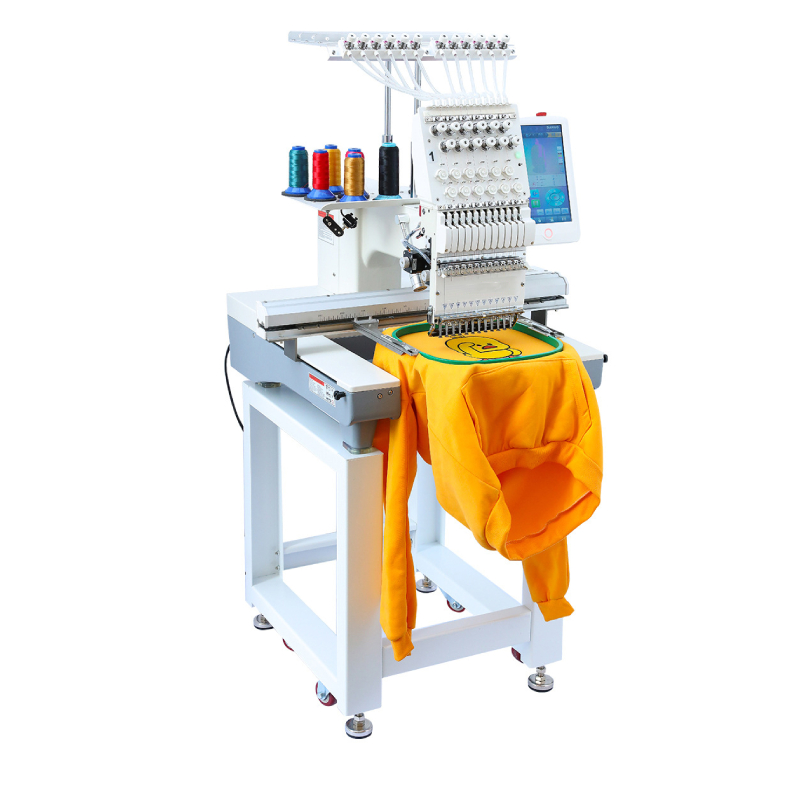
Choosing Your Machine: A Comparative Analysis and Trust Factors
When evaluating the best industrial embroidery machines for sale, it's crucial to move beyond basic specifications and delve into a comparative analysis that considers long-term operational costs, reliability, and after-sales support. While many manufacturers offer competitive features, key differentiators often lie in the quality of internal components, the robustness of the software, and the manufacturer's commitment to customer service. For example, some machines might boast higher SPM rates but lack the precision engineering to maintain stitch quality at those speeds, leading to frequent thread breaks or inconsistent results. It's essential to scrutinize the type of motors used (e.g., Japanese servo motors vs. stepper motors), the build quality of the needle driving system, and the durability of the tensioning mechanisms, as these directly impact machine longevity and stitch perfection. Manufacturers with a long service history and extensive industry certifications (like ISO 9001 for manufacturing quality and CE for product safety) typically signify higher reliability and adherence to strict quality control protocols. Furthermore, a comparison of the user interface and software integration capabilities is vital; a machine with an intuitive touchscreen and compatibility with a wide range of embroidery design software will significantly reduce operator training time and enhance workflow efficiency.
Trustworthiness in a B2B transaction for high-value capital equipment like an automatic embroidery machine is built upon several pillars: transparent service level agreements, comprehensive warranty provisions, efficient delivery logistics, and robust customer support. Reputable suppliers provide clear documentation on delivery lead times, typically ranging from 2-4 weeks depending on customization and destination, and offer tracking capabilities. A standard warranty of 1-2 years on major components, with an option for extended coverage, signifies confidence in the product's durability. Furthermore, access to responsive technical support—including online troubleshooting, video tutorials, and readily available spare parts—is paramount to minimizing downtime. Many leading suppliers offer installation services and on-site training to ensure operators are fully proficient, maximizing the machine's utility from day one. Case studies highlighting successful deployments across various industries, coupled with testimonials or public reviews from established clients, further reinforce a manufacturer's reputation. For example, a client feedback noting that a `computerized t shirt embroidery machine` reduced their production time by 25% while maintaining superior quality, directly showcases the practical benefits. This comprehensive approach to product quality and customer partnership is what truly distinguishes top-tier industrial embroidery machine providers, ensuring that your investment yields consistent, high-quality output and a strong return over its operational lifespan.
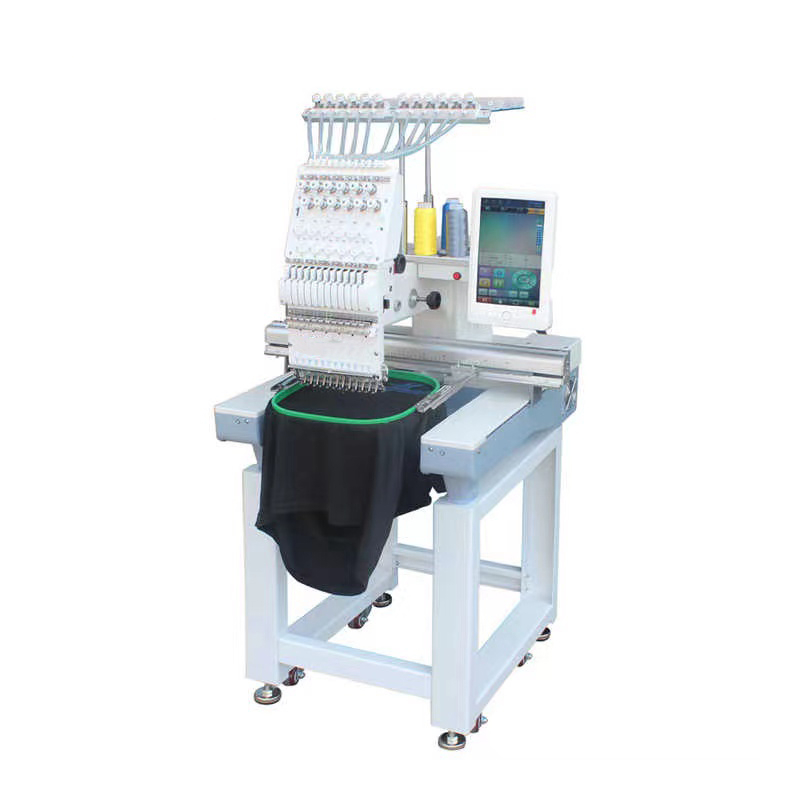
Manufacturer Comparison Table: Key Differentiators
| Feature | High-Tier Manufacturers | Standard Manufacturers |
|---|---|---|
| Control System | Advanced Dahao/Pantograph, IoT enabled, 10-15" HD touch screen | Basic LCD, limited connectivity, 7-8" screen |
| Motors & Drivers | Japanese Servo Motors (e.g., Panasonic, Fuji), integrated drivers for superior precision and longevity | Stepper motors or generic servo motors, external drivers, potentially higher maintenance |
| Mechanical Build | Precision CNC machined parts, high-grade steel chassis, minimal vibration, low noise | Standard machining, potentially more vibration at high speeds, higher noise |
| Automatic Functions | Reliable auto thread trim, auto color change, power-off recovery, thread break detection | Less consistent auto thread trim, manual checks often required |
| Attachments & Hoops | Wide range of specialized hoops (cap, shoe, pocket) and attachments (sequin, cording) included or optional | Limited standard hoops, specialized attachments often incompatible or unavailable |
| Warranty & Support | Comprehensive 1-2 year warranty, remote diagnostics, on-site installation/training, readily available parts | Shorter warranty, limited remote support, parts often require longer lead times |
Frequently Asked Questions (FAQ)
Navigating the purchase of industrial embroidery equipment often involves specific queries regarding performance, maintenance, and compatibility. Here are some frequently asked questions that businesses commonly raise when considering the best industrial embroidery machines for sale:
-
Q: What is the typical service life of an industrial embroidery machine?
A: With proper maintenance, an industrial embroidery machine can reliably operate for 10 to 15 years, and often longer. Factors influencing longevity include the quality of components (e.g., servo motors, robust frame construction), adherence to maintenance schedules, and the operational environment. Machines designed for continuous, heavy-duty use from reputable manufacturers are built to withstand the rigors of high-volume production. -
Q: How does a computerized t shirt embroidery machine handle different fabric types?
A: Modern computerized T-shirt embroidery machines are highly versatile. They can handle a wide range of fabrics, from delicate silks and jerseys to heavy denim, leather, and even thick materials like caps or bags. This versatility is achieved through adjustable presser foot height, precise tension control systems, and various needle types designed for specific materials. Proper hooping techniques and digitizing also play crucial roles in ensuring optimal results across different fabric weights and weaves. -
Q: What kind of after-sales support can I expect for an automatic embroidery machine?
A: Reputable manufacturers offer comprehensive after-sales support, including installation assistance, on-site or remote training for operators, technical troubleshooting via phone or video call, and access to a full range of spare parts. Many also provide maintenance guides, software updates, and extended warranty options. This support is crucial for minimizing downtime and ensuring the long-term productivity of your investment. -
Q: What are the typical delivery times and warranty provisions?
A: Delivery times for industrial embroidery machines typically range from 2 to 4 weeks, depending on the specific model, level of customization, and destination. Manufacturers generally provide a standard warranty of 12 to 24 months for major components, with options for extended warranties. It's important to clarify the specifics of the warranty (e.g., parts, labor, on-site vs. return-to-base) with your supplier.
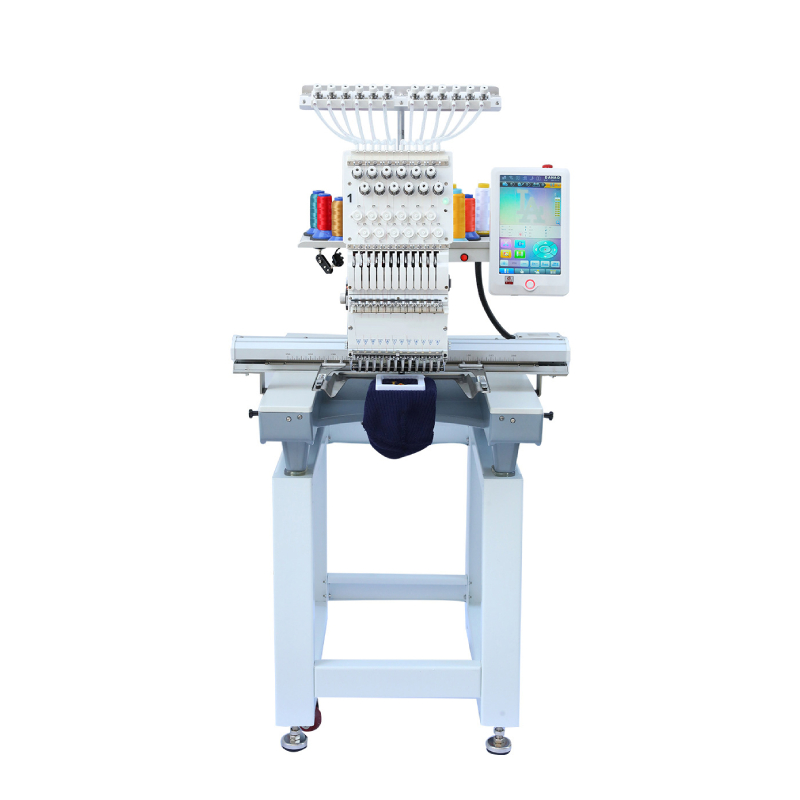
Conclusion: Strategic Investment in Embroidery Technology
Investing in the best industrial embroidery machines for sale represents a strategic decision for businesses looking to enhance their production capabilities, expand their product offerings, and capitalize on the growing demand for customized textiles. The evolution of these machines, from basic stitching devices to sophisticated, automated systems, reflects the industry's need for greater efficiency, precision, and versatility. By understanding the intricate technical parameters, appreciating the rigorous manufacturing processes that ensure durability, and recognizing the broad spectrum of applications these machines serve, businesses can make informed choices that yield significant long-term benefits. Factors such as high SPM rates, extensive memory capacity, intuitive control systems, and the ability to seamlessly switch between flat and cap embroidery are crucial for maximizing throughput and minimizing operational complexities. The ongoing commitment to research and development by leading manufacturers ensures that these machines continue to adapt to emerging market trends, incorporating features like IoT connectivity for remote monitoring and predictive maintenance, further optimizing uptime and profitability for the end-user.
The success stories of businesses that have effectively integrated a high-performance automatic embroidery machine underscore the transformative impact of this technology. From small custom apparel shops scaling up their operations to large manufacturing facilities streamlining their production lines, the right embroidery solution acts as a cornerstone for growth. The commitment of reputable suppliers to comprehensive after-sales support, including training, spare parts availability, and robust warranties, builds a foundation of trust essential for long-term partnerships. This holistic ecosystem of advanced machinery, dedicated support, and continuous innovation positions businesses to not only meet but exceed customer expectations in a highly competitive market. As the textile industry continues its rapid evolution, driven by consumer demand for personalized and high-quality products, the strategic acquisition of a state-of-the-art industrial embroidery machine remains a paramount investment for sustainable success and market leadership.
References
- Textile Industry Production Analysis: Trends in Automation and Customization.
- Advanced Manufacturing Techniques in Garment Production: A Review.
- Quality Control and Certification Standards in Industrial Machinery Manufacturing.
- The Impact of Digitization on Textile Embellishment Processes.
- Operational Efficiency and ROI in Automated Embroidery Systems.
-
Best Industrial Embroidery Machines for Sale - Computerized, Automatic
NewsAug.17,2025
-
Professional Embroidery Machine: High-Quality T-Shirt Production
NewsAug.16,2025
-
Affordable Computer Embroidery Machine Prices & Deals
NewsAug.15,2025
-
Affordable Automatic Embroidery Machines: Flat, Cap & Multi-Head
NewsAug.14,2025
-
Cheap Computer Embroidery Machine Price | Pro Cap Embroidery
NewsAug.13,2025
-
Best Industrial Embroidery Machines for Sale – Heavy Duty & Reliable
NewsAug.12,2025

Copyright © 2025 Xingtai Pufa Trading Co., Ltd All Rights Reserved. Sitemap | Privacy Policy
